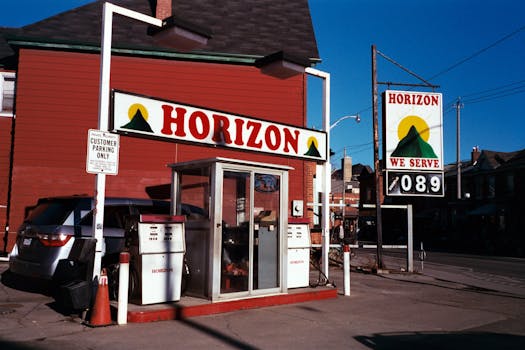
**
Delhi's fight for cleaner air intensifies today as the much-anticipated ban on petrol and diesel vehicles older than 15 and 10 years, respectively, comes into effect. This landmark decision, aimed at curbing vehicular pollution and improving air quality in the notoriously smog-choked capital, is expected to impact thousands of vehicle owners. The ban, initially announced in 2022, has been met with a mix of anticipation and apprehension, sparking heated debates and legal challenges. This comprehensive guide breaks down everything you need to know about Delhi's old vehicle fuel ban.
Understanding the Delhi Old Vehicle Fuel Ban
The ban, officially implemented by the Delhi government, targets petrol vehicles registered before January 1, 2008, and diesel vehicles registered before January 1, 2013. These older vehicles, often emitting significantly higher levels of pollutants than newer models, are deemed to contribute heavily to the city’s chronic air pollution problem. The policy aims to encourage a transition to cleaner, more efficient vehicles.
Who is Affected?
This ban directly impacts owners of petrol and diesel vehicles that fall within the specified age brackets. This includes:
- Private car owners: Individuals owning older petrol or diesel cars will no longer be able to fuel their vehicles at petrol pumps in Delhi.
- Commercial vehicle owners: This includes taxis, auto-rickshaws, buses, and trucks. Older commercial vehicles will also face restrictions on refueling.
- Two-wheelers: While not explicitly stated in the initial announcement, the ban's intent to reduce overall pollution likely encompasses older two-wheelers as well, although specifics might require further clarification.
What are the Penalties for Violation?
The Delhi government has outlined penalties for those violating the ban. While the exact amount might vary depending on the vehicle type and the nature of the violation, expect substantial fines and potential vehicle seizure. The enforcement mechanism will rely on a combination of:
- Increased police patrols: Police will be monitoring roads and petrol stations to identify violating vehicles.
- Technology-based monitoring: The use of Automatic Number Plate Recognition (ANPR) systems is likely to be employed for efficient identification of offending vehicles.
- Citizen reporting: The public may be encouraged to report violations, assisting enforcement authorities.
Exemptions and Exceptions
While the ban is stringent, certain exemptions might be considered under specific circumstances. These exceptions are likely to be limited and subject to stringent scrutiny, possibly including:
- Vehicles used by essential services: Emergency vehicles, ambulances, and some government vehicles could receive exemptions.
- Vehicles with valid permits: Certain vehicles might be granted temporary permits for specific purposes, subject to stringent conditions.
- Historical vehicles: Vehicles registered as historical artifacts or of significant heritage value may also be granted exceptions, subject to stringent vehicle emission testing.
The Impact on Delhi's Air Quality
The anticipated impact of the old vehicle fuel ban is significant. Proponents argue that removing a large number of high-emission vehicles from Delhi's roads will substantially improve air quality, leading to:
- Reduced particulate matter: This is expected to significantly decrease the concentration of PM2.5 and PM10, major contributors to respiratory illnesses.
- Improved respiratory health: A cleaner air environment could translate into fewer cases of respiratory problems and related health issues.
- Enhanced visibility: Reduced smog will lead to improved visibility, especially during winter months.
However, critics argue that the ban alone might not be sufficient to solve Delhi's complex air pollution problem and advocate for a multi-pronged approach.
Challenges and Criticisms
The implementation of the ban faces significant challenges:
- Enforcement difficulties: Effectively enforcing the ban across a vast city with millions of vehicles presents a considerable logistical challenge.
- Impact on livelihoods: The ban could significantly affect the livelihoods of those who rely on older vehicles for transportation and commercial purposes. The government needs to consider providing alternative solutions and support for those affected.
- Need for comprehensive solutions: Many experts argue that the ban should be part of a broader strategy that includes improvements in public transportation, infrastructure development, and industrial emissions control.
Alternatives and Future Plans for Cleaner Delhi
The Delhi government is simultaneously promoting several initiatives to mitigate the impact of the ban and further reduce pollution:
- Investment in public transportation: Enhanced bus services, metro expansion, and improved cycling infrastructure are key components of the government's plan.
- Promoting electric vehicles: Incentives and subsidies for electric vehicles are intended to encourage their adoption.
- Stricter emission norms: Stringent emission standards for new vehicles are also being implemented to limit pollution from newer models.
- Improved fuel quality: Transitioning to cleaner fuels like BS-VI compliant petrol and diesel is also crucial.
The old vehicle fuel ban marks a significant step in Delhi's fight for cleaner air. While challenges remain, its successful implementation, coupled with other initiatives, could significantly contribute to a healthier and more sustainable future for the city. The coming months will be crucial in assessing the effectiveness of the ban and its impact on both air quality and the lives of Delhi residents. Monitoring the situation closely and staying informed is essential for all Delhi citizens. The road to cleaner air is long, but this is a significant step forward.




















